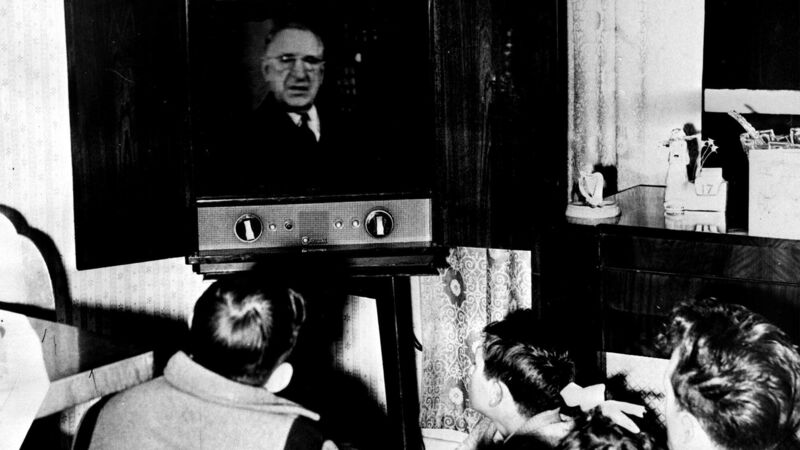The public deserves answers and RTÉ needs to salvage its reputation

Children in Churchfield, Cork, watch as Éamon de Valera became the first person to speak on Ireland’s television station in 1962. RTÉ's top brass have allowed ‘irreparable harm’ to be visited upon it.
It is most disheartening and distressing to see a well-regarded institution like RTÉ being brought to its knees.
Revelations of sweet side-bar deals, orchestrated to the financial benefit of popular presenter Ryan Tubridy, have sadly undermined public trust and confidence.
















